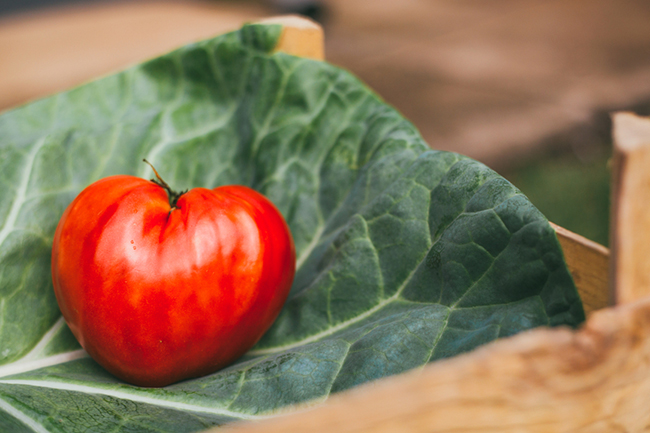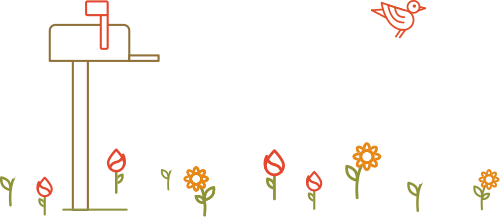Two news media reports came out today that are worth discussing. With this post I hope to show you that it is not always prudent to trust your health to the advice of journalists. The reason? They are trained to sell articles, not to make you healthy.
In the first story, CNN reports that organic food is not more nutritious than conventionally grown food. This is partially true, but not entirely. The headline is actually very misleading because the implication is that the way food is produced does not influence its nutrient levels, which is false.
The problem begins when the author claims that the study “is the first to assess the nutritional value of organic fruit and vegetables.” Seriously? Do you really believe no one has ever thought of this before?
Of course this has been tested, and there is ample evidence that the way food is grown has a tremendous impact on its nutritional quality. It is unclear to me why this statement is made, but it must be referring to something other than the hundreds of studies published on the nutritional value of organic foods.
The scientific literature on the nutrient content of fruits and vegetables strongly suggests that the health of the soil in which a plant is grown and the season of harvest are the best indicators of nutritional value. Soil health is a complex measurement (as is human health, which we’ll get to in a minute). In general, farms that have a variety of different crops tend to have healthier soil than mono-cultures with only one crop (e.g. giant corn or soybean fields). It has already been established that organic mono-cultures have no more nutritional value than conventional mono-cultures. This is not news.
On the other hand, smaller farms with diversified crops grow much more nutritious produce than large production mono-cultures. Not surprisingly, these farms tend to be the organic farms (though they are not always certified). It is therefore true that “organic” versus “conventional” is something of an artificial distinction and is not a guarantee of a difference in nutritional value. However it is also true that produce purchased from farmers’ markets that feature small, local farms is almost certainly more nutritious than anything you buy (organic or not) at a regular grocery store.
In this experiment all the plots had similar soil, so you would expect there to be no nutritional difference. This is what the researchers found.
Another thing to consider is that in this experiment the scientists are measuring nutrient retention (how many nutrients come out in urine and feces) in rats after being fed dried vegetables grown with either low-nutrient organic fertilizer, low-nutrient conventional fertilizer or high-nutrient conventional fertilizer. So, they do not measure nutrients directly from fresh vegetables, nor do they measure nutrient availability in humans, nor do they test organic food that has been grown in high-quality soil.
Is it just me or are you already starting to feel a little less enlightened?
Also remember that the study does not address the amount of chemicals and pesticides found in rats after consuming this food. However, several studies have found a correlation between conventional agriculture and pesticides in the body. This is yet another reason to consider buying organic agriculture products.
Now consider the headline: “Study: Organic food not more nutritional.” Do you think this is a fair assessment of the costs and benefits of buying organic?
Do not be fooled by CNN’s sensationalism. How food is grown can affect its nutrient content and it is worth it to buy local, organic produce.
That being said, it is far better to eat any vegetables than none at all.
————–
The second misleading article is in the New York Times. The main point of the story is that body mass is not a good predictor of health, with the headline reading “Better to be fat and fit than skinny and unfit.” Indeed there may be some evidence that this statement is true, but it undermines the indisputable fact that it is best to be both skinny and fit.
The study in question uses cardiovascular risk factor measures to determine “metabolic health.” Half of the overweight individuals and a third of the obese individuals were considered metabolically healthy by the researchers. Additionally, one quarter of individuals of “healthy weight” had cardiovascular risk factors.
So what the headline should have read is: “It’s better to be fit than unfit.” The writer of the article, Tara Parker-Pope, embellishes this point with the observation that being fit can be achieved at numerous different weights and brushes aside the fact that you are far more likely to be healthy if you are not overweight.
So far this is not so bad, right? Indeed it is better to be fit, and Parker-Pope goes on to argue that being fit is the best predictor of health. Okay, but what about the weight?
Evidence is abundant that being overweight or obese increases risk for a number of different diseases, not just heart disease. Fat is an endocrine organ and more fat can significantly alter hormone levels that make you susceptible to cancer and other diseases. Breast cancer is particularly prevalent among obese women. Heavier people are also more likely to have arthritis then normal weight individuals and there is a correlation between body composition and dementia risk. None of these other diseases are mentioned in the article.
It is also important to remember that calorie restriction (minimal calories with adequate nutrition) is the single most reliable way to slow the aging process and reduce diseases of all kinds. Abundant evidence has proven that overweight people eat more than slim people (though they frequently don’t know it), suggesting that their risk of age-related disease increases with the amount they eat.
Parker-Pope observes, “Part of the problem may be our skewed perception of what it means to be overweight.” I agree with this statement, but not in the way she means it. In my opinion, articles like this give people a false impression that being overweight is not a problem, when in fact it is one of the most serious risk factors for almost every disease. I think our perception is being skewed to the point that extra body fat is no longer considered dangerous.
To point, last year at the American Association for the Advancement of Science annual meeting, Harvard scientist Dr. Walter Willett predicted that obesity would soon overtake smoking as the number one cause of cancer. Critics say that comments like these are unwarranted and only serve to make overweight people feel inferior. However, the evidence is too strong for me to believe this is a superficial argument about looks or laziness. The point is not to blame people for their health problems, but rather to help those people find ways to overcome them.
I would love to know your opinion on any of these issues.





 Health
Health Habits
Habits Food
Food Weight
Weight 



 Better Than Butternut: Roasted Delicata Squash Recipe
Better Than Butternut: Roasted Delicata Squash Recipe 10 Simple Ways To Eat Less Without Noticing
10 Simple Ways To Eat Less Without Noticing Juicing: Stupid and Pretentious or Nourishing and Enlightening?
Juicing: Stupid and Pretentious or Nourishing and Enlightening? 10 Tasty Carbs That Won’t Make You Fat
10 Tasty Carbs That Won’t Make You Fat How To Start Working Out When You Don’t Like To Exercise
How To Start Working Out When You Don’t Like To Exercise
 Focus More on Your Brain and Less on Your Diet if You’re Serious About Losing Weight
Focus More on Your Brain and Less on Your Diet if You’re Serious About Losing Weight Home Court Habits: The Secret to Effortless Weight Control
Home Court Habits: The Secret to Effortless Weight Control 10 Reasons You Aren’t Losing Weight When You Think You’re Doing Everything Right
10 Reasons You Aren’t Losing Weight When You Think You’re Doing Everything Right How To Burn More Calories Without Breaking A Sweat
How To Burn More Calories Without Breaking A Sweat The 7 Habits of Highly Effective Foodists
The 7 Habits of Highly Effective Foodists









